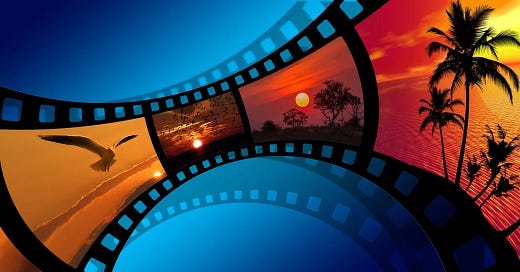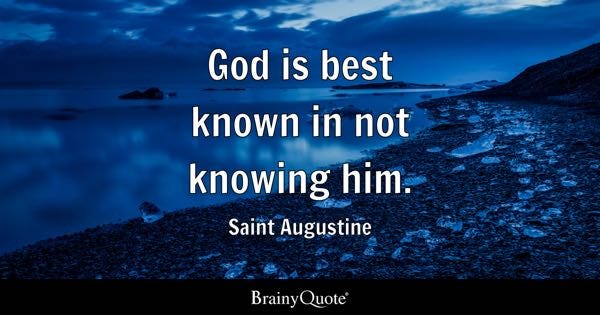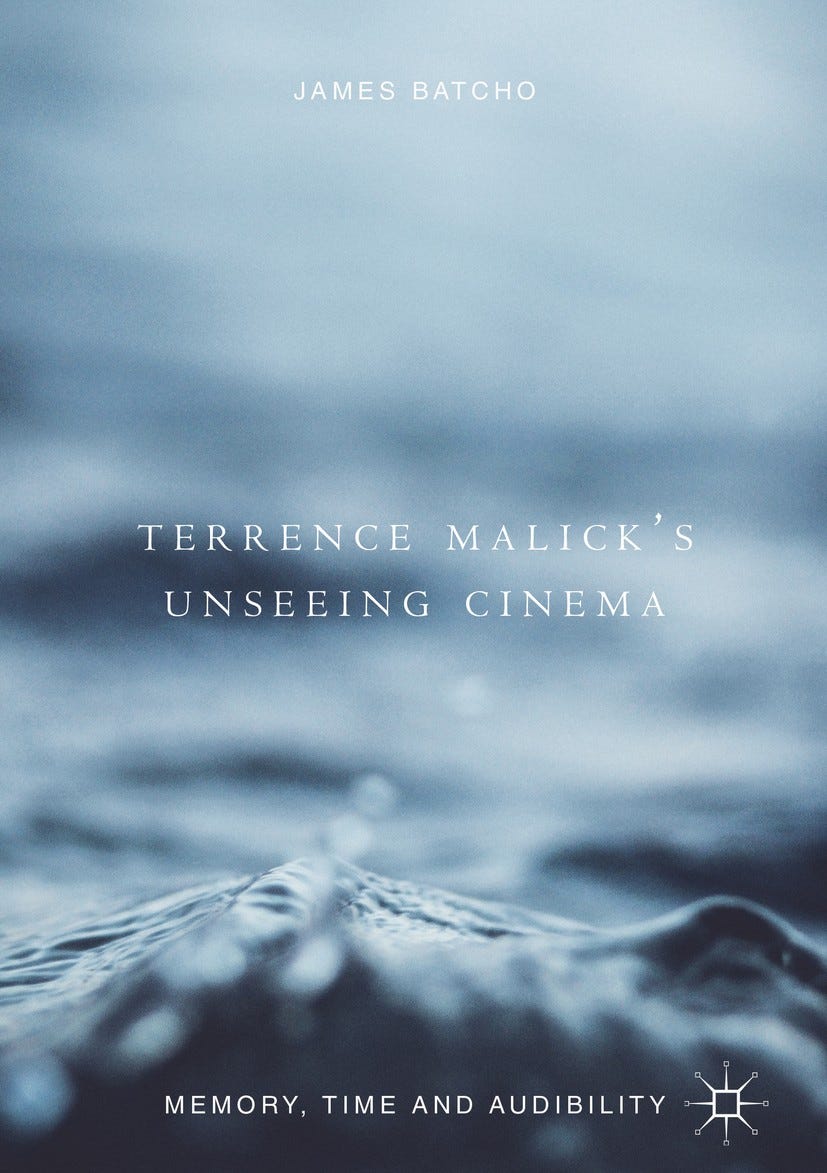#NotJust Films: Can We Ever Really Watch Any Film Completely?
Reflections on the Infinite Beauty of Art and of Life; and what this Infiniteness could Mean for the Ways in which we could Relish and Cherish this Beauty!
Hello Dear,
I begin typing in these words after heaving a sigh of relief, not because of some relief per se, but more in an involuntary attempt to calm my energy levels which are bubbling up inside me. In a sense, it is a kind of restlessness due to the excitement I often experience, thinking of numerous and diverse ideas and strands of ideas flowing in from multiple directions. I mean, life sure is infinitely interesting, I would say, and I wish I could just do nothing else but think, read, write, learn, question, discuss and share ideas. What say? Well, this reminds me of the following quote by Jean-Baptiste Racine, who I learn was a 17th century French playwright.
“Life is a comedy to those who think, a tragedy to those who feel.”
This however raises another interesting question: how do we differentiate thinking and feeling? Well, it strikes me that thinking vs. feeling is one of the four “scales” emloyed by the Myers Briggs Personality Indicator, based on which people are classified into one of 16 personality types. You can read more on this personality test and how it distinguishes between thinking and feeling here. [Another related question here is whether mind, body, heart and soul are all the same, or whether each one of them is different. Some would of course even ask, whether all of them do exist, to begin with. And even here, even if some of them do not exist, the question remains, whether all among the four which do exist are the same, or whether they are different.]
Ok, even if we leave these distinctions aside, I wonder how life could be a comedy for those who think. Let me share one of my earlier reflections, which hopefully throws some light into where I come from.
[Beginning of a piece of reflection I wrote in June 2023]
The Tyranny of Beauty
Life is Beautiful. Is it not? Or is it? The very interesting thing is that whichever way you think, it is a problem!
1) Let us say that you believe life is not beautiful. There is a lot of misery in the world - poverty, hunger, violence, confusion, crime, deprivation and injustice - each of which can be physical, emotional, economical, social, intellectual, political and spiritual. Obviously then, this is a problem, right? This demands action to remedy at least the remediable injustices, as the great Indian economist and philosopher Amartya Sen put it.
“What moves us, reasonably enough, is not the realization that the world falls short of being completely just – which few of us expect – but that there are clearly remediable injustices.” - Amartya Sen
(We have already discussed this here).
Now, let us say that you believe the opposite: that life is beautiful. Just in case if you wonder why this should be a problem, just pause and reflect for a while. In my view, the presence of beauty in life places a heavy burden on us to experience it. If life had not been so beautiful, we might have had lesser aspirations and more modest desires and urges to experience what is there to know and experience.
But if life is so beautiful, it keeps us thirsting for more meaning, even if that be knowledge, wisdom or spiritual meaning.
This is one thought which I had been thinking of for quite a few years now, but it resurfaced today, and I believe it is quite pertinent to IIS as well (IIS is Indian Information Service, the civil service to which I happen to belong; more about IIS here). Let me explain how.
We went along with my daughter, to Shankar's International Dolls Museum in Delhi today. They have a great collection of thousands of dolls from so many countries across the world and from so many states of India. There is just a lot to see, learn and observe, and experience.
I was telling my wife, as many of us are wont to tell ourselves on such occasions and exhibitions, that we need much more time to truly enjoy and experience what these "exhbitions" and festivals or celebrations offer. And well, "much more time" which may never come in what appears to be a finite life "in body", on earth.
I hope you are able to guess where this is leading us. Ha, one destination is #NotJust IFFI and #NotJust MIFF (IFFI stands for the International Film Festival of India, and MIFF for Mumbai International Film Festival; our service IIS has been actively involved in both, and both of these happen to be close to my heart as well). I have heard arguments, especially during my time organizing MIFF at the erstwhile Films Division of Government of India, that people should get an opportunity to experience everything at the film festival, and that the schedule should hence be such, so that they attend this too, that too, etc.
I have however on such occasions taken the opposite argument, that:
A great film festival, or any great festival for that matter, should always have much more on offer than what we are able to absorb and immerse ourselves in. In other words, it should be infinite.
Indeed, this is one reason why I believe IFFI too should be renamed as Infinite Film Festival of India, if #NotJust IFFI is out of question. 😊
Come to think of it, life too is #NotJust Life, right? It is an infinite life, not a finite life, where the cup of experiences is an infinite one, one which you can never empty, which you can never experience in full?
So, one public policy question here is the philosophy which should underlie the organization and structuring of festivals and exhibitions and more generally, experiences. The basic question being: do we keep them infinite, or finite?
If infinite is the ideal, we need to then address the crucial questions of how we can guide our citizens - or celebrants of the festival or art - to best experience or celebrate that which is being celebrated. I mean, in the case of a film festival, how can we help them make the most of the festival, of the celebration, without being overwhelmed, or underwhelmed, so to say? Indeed, this in turn demands a rich understanding of what the film festival is meant to be for, and what it should be for.
Further, infinity is #NotJust one, there are multiple infinities, bigger and smaller infinities - like natural numbers and rational numbers for instance. So, another policy question is how big an infinity do we want our celebration to be?
On the other hand, if the ideal is that the festival or celebration should be finite, this raises the further question of, maybe, what to leave out of the celebration, and what gets included. I mean, these choices become all the more crucial, in a finite avatar.
Interestingly, the concept of infinite celebrations also relates to the concept of information overload and information pollution - or shall we say, celebration overload or beauty overload. If that be so, a prayer appropriate for our time might be:
God, Let us not fall into infinite festivals which overwhelm us, Deliver us from the tyranny of beauty overload.
A last point to reflect is: where do the field exhibitions conducted by the government stand on this? Are they finite or infinite? Do they elevate people's souls, making them feel that there is much more which they could not experience, or do they make them feel underwhelmed? In fact, why single out our exhibitions? Where do our communications stand? Do they convey the vast expanse of the horizon of possibilities, or do they illuminate but our own miserable storms in a teacup?
[End of the piece of reflection I wrote in June 2023]
In fact, the difficult choice between finiteness and infinity on the one hand and between smaller and larger infinities on the other is closely related with the more general question of the choice between small and big or short and long. We have indeed addressed this in some manner in this previous post.
Is Short Always Sweet? Can('t) It Be Bitter Too?
Reflections on the increasing shortness of our communications and interactions in modern life, and the impact of this paradigm on our lives and relationships.
I just got reminded of another piece of reflection I have written on the same theme: this time, with specific reference to films, film festivals and the role of public communication and hence of our service IIS, in such film festivals. Hope this sheds more light into the issue, and to my perspective.
[Beginning of a piece of reflection I wrote in June 2023]
On Watching Films
0) A thought which struck me today...especially in the context of the role of IIS in film festivals, such as, but #NotJust #NotJust IFFI (please note that repetition of #NotJust is not a typo here). 😊
1) Many of our fellow officers have been holding the view and hence making the argument that it is necessary to watch films in order to come out with communication products based on them, such as press releases. And that we officers should watch films before conducting press conferences being addressed by directors or other people associated with the respective films.
2) Well...I have always held and continue to hold a different view. Here's an attempt to explain.
3) The arguments in 1 seem to be flowing from an underlying belief in the role of knowledge in advancing our understanding and appreciation of life, and hence of the worlds within and outside us. It seems to me that the proponents of this belief hold that knowledge is necessary to advance our understanding.
Quite interestingly, I think this same philosophy is behind the thinking that "information is power" and that the mission of IIS is "informing people" and "empowering people with information" (the last one is what an IIS officer who retired in the 20th century told some of us recently). But more on this point later.
4) Sure, knowledge is important. But part of my point which I would like you to reflect on, is that this is not the whole story.
A fuller story would be: knowledge is #NotJust important!
5) Yes, knowledge helps. But it can also be an obstacle. I have shared my reflections on this quite a few times before; a brief exploration is given in this post below, another one is given here.
Why Curiosity is More Important than Knowledge
Reflections on how and why our awareness of our infinite ignorance and the desire to learn is more important than our finite knowledge.
This is so, especially since it is difficult for us to evaluate and judge the worth of our own knowledge. We are too prone to mistake our ignorance for knowledge and vice versa, leading to illusions and delusions of knowledge. In this fashion, every major advance stands in the way of the very path it has laid down. If I have come up with a great idea and world-view which also becomes popular and acclaimed, the aura surrounding this idea itself hinders further advance, as explained in this post below.
A Humble Inquiry into the Dynamics of "Sharing" Ideas
Reflections on the process and power of sharing ideas, and the potential impact this could have on the ideas themselves, as well as on those who share them!
6) Ok, so the first point is that watching the film, by making us familiar with it, makes it difficult for certain kinds of insights, questions and curiosities to take root and flower.
7) The second problem with the argument in 1, in my opinion, is the presumption that those who have watched the film have watched the film! This looks like self-negation, but it is not. We tend to think that a film can be watched completely, and once and for all. I think this is a very narrow view of engaging with and appreciating art.
8) I think and would request you to consider that:
Any good work of art is an incomplete product. If we watch it once, then we have just watched it once, we cannot quite say we have watched it.
For all we know, we might have just soaked in just 10% of the artistic mission which underlay the work of art. At the risk of putting it crudely, I am reminded of people who watched the film Sholay in the cinema hall nothing less than 25 times. If they had watched the film completely in the very first instance, why watch again?
9) But even this quantification is of course an oversimplification.
To say we have soaked in 10% of artistic beauty presumes that the beauty is finite, to begin with. It makes the further presumption that the beauty is uniform and definite, conveying the same experience for each film lover. Neither of these is true.
So, these are additional factors which lead us to accept humbly that watching a film is not watching a film completely. I hope it may not be inappropriate to share something on the virtue of incompleteness of art, though it is written by I myself, in the form of a film review given here.
10) The third and fourth points I would like to make, with respect to the argument in 1...are obtained simply by inverting the first and second points respectively. The third point, very briefly put, is that:
Ignorance is #NotJust precious, it is an asset whose value we often overlook. Unlike knowledge, once lost, ignorance is difficult or some would say impossible to recover.
Quite interestingly, one filmmaker took offence that I was asking him questions about his film without watching it. I for one find it to be quite myopic a view, if one expects only those watching the film to be able or qualified or permitted to talk about it.
11) The fourth point is what I see as the inaccurate presumption that those who have not watched the film have not watched the film. Let me explain.
12) This view holds a narrow view of what it means to watch a film - that it is something to be watched in a cinema hall. (Note that while this was the earlier definition, with changes in technology, we have almost unconsciously allowed this definition to become more accommodative, wherein watching a film is now included watching it on an OTT platform or on our mobile phone or our laptop in the confines of our room, even if it is with no one else being there to share the experience with! This is quite opposite to what film watching was meant to be: a communal and shared experience.)
13) Secondly, this view presumes that film is something to be watched or seen! It adopts a constricted view of the range of options through which a film lover can enter the world of the film. For instance, what about reading on the film? What about Persons with Disabilities "watching" the film through audio descriptions? What about hearing about the films from someone else? Indeed, this can be taken to be too liberal a view, which some would regard as not being true to the core idea of what a film is about. In this sense, this might even be taken to be a corrupted sense of what films and watching films are and are meant to be. I do not wish to hush these questions under the intellectual or artistic carpet. We need to engage with them, I believe.
15) Let me stop with a fifth point.
Besides the role of knowledge obtained through watching films and ignorance obtained through not watching films, I think it is crucial to also recognize the role of unknowing, unseeing and unexperiencing, if I may.
As I have shared before (in part here), even about God it is said, I think by St. Augustine, that He is best known by unknowing.
[Here is another very promising book I just discovered: The Cloud of Unknowing].
Closely related to this is the crucial role and gift of forgetting in human life.
Certain truths register themselves only when we imbibe them and then forget them, so that they become embedded, so that the need to remember disappears, so that we can choose to forget to remember.
In this sense:
We must first remember them in order to forget them, so that we are able to then forget to remember them.
Reflecting on this, I chanced upon the idea of cinematic unseeing a few months ago.
16) So, where to go from here? Marriage, in a word could be the answer. Yes, the fusion of the perspectives and ideas inspired by knowledge and ignorance. For instance, one idea we came up with, but could not implement, is to have two officers conduct each press conference, where one officer has watched the film and the other officer has not. In fact, that reminds me that I have been thinking, for around 8 years now, of a similar model for allocating government communication charges of Ministries and departments, to PIB Delhi officers...hope to share more on those potentially whacky ideas later.
17) Ok dear, what these reflections show, I hope, is that films are in fact #NotJust films. Well, that is #NotJust one of the reasons why I believe we should rename IFFI to #NotJust IFFI.
Good day! - #NotJust Dheep. Let me know if you want to #NotJust hit me for the use of #NotJust. 😊
Postscript: Part of the inspiration for this reflection now is a fellow officer telling me of a press release which we issued in #NotJust IFFI 2021, where she said it came out beautifully well, even though (or because?) the editor did not "watch the film".
[End of the piece of reflection I wrote in June 2023]
There we go…as we are about to close, I would like to share the reflection that there is a very close parallel or even congruence between the films we watch and the films or rather the grand film of which we are a key part - i.e., between the films on the silver or other screens, and the film we call life.
We happen to have explored this question in this previous post below.
Do We Really Die When We Are Dead, and Live When We are Alive?
Reflections on the meanings of life and death, on what it means to live and be fully alive; in life, in death and after death.
Both - our films and our lives - are infinite, in a sense; both are never complete. Are they?
Or do I hear some of you saying that it is not an either-or dichotomy, that they are both finite and infinite at the same time, both completable and incompletable at once? 😊
Either way, when it comes to #NotJust my posts or articles such as this one you are reading now, I would like to think they are incomplete. After all, how many would be reading them from beginning to end even once?! So, congratulations to you if you have managed to do that! And moreover, thank you very much! 😊
I am most grateful for your precious presence here; please do let me know - either in comments or at newdheep@gmail.com - of your invaluable thoughts. Thank you once again! - Dheep.











